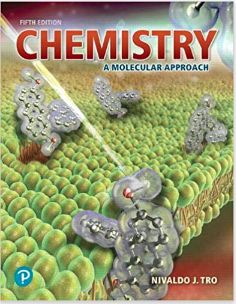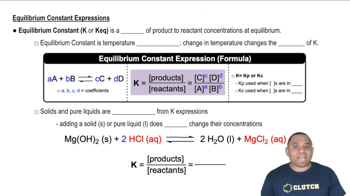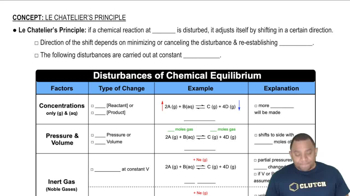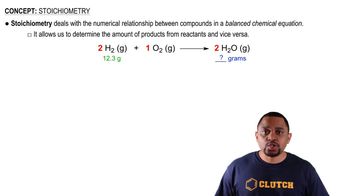Textbook Question
Consider the reaction: 2 NO(g) + Br2(g) ⇌ 2 NOBr(g) Kp = 28.4 at 298K In a reaction mixture at equilibrium, the partial pressure of NO is 108 torr and that of Br2 is 126 torr. What is the partial pressure of NOBr in this mixture?

 Verified step by step guidance
Verified step by step guidance


Consider the reaction: 2 NO(g) + Br2(g) ⇌ 2 NOBr(g) Kp = 28.4 at 298K In a reaction mixture at equilibrium, the partial pressure of NO is 108 torr and that of Br2 is 126 torr. What is the partial pressure of NOBr in this mixture?
Consider the reaction: SO2Cl2(g) ⇌ SO2(g) + Cl2(g) Kp = 2.91⨉103 at 298 K In a reaction at equilibrium, the partial pressure of SO2 is 137 torr and that of Cl2 is 285 torr. What is the partial pressure of SO2Cl2in this mixture?
Consider the reaction: NH4HS(s) ⇌ NH3(g) + H2S(g) At a certain temperature, Kc = 8.5⨉10-3. A reaction mixture at this temperature containing solid NH4HS has [NH3] = 0.166 M and [H2S] = 0.166 M. Will more of the solid form or will some of the existing solid decompose as equilibrium is reached?